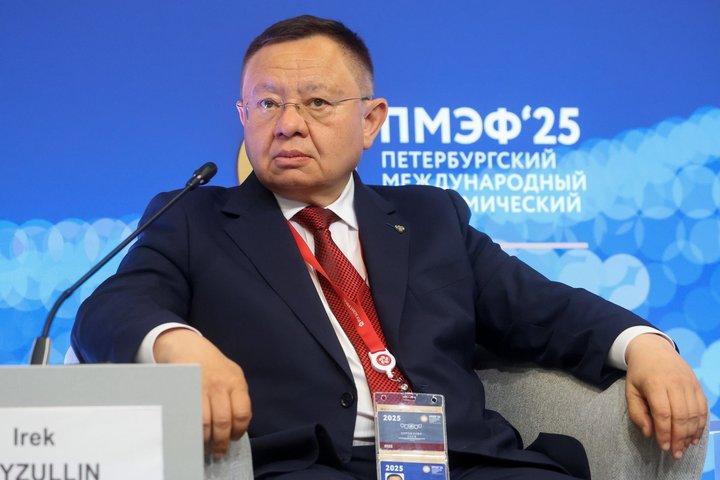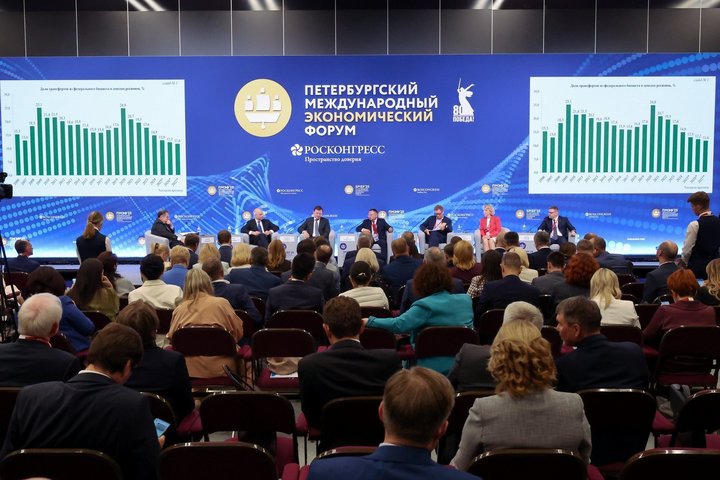Andrey Makarov, State Duma: ‘If the lowest price wins, then your system is meaningless, although efficient’
Head of the Ministry of Construction of Russia Irek Fayzullin and head of the Federal Tax Service Daniil Yegorov convinced the authorities to abandon the “lowest price” principle in public procurement

“You can build nothing and still act in accordance with Federal Law 44-FZ — and you’re ‘in the clear’. But you can build everything and violate 44-FZ — and end up in prison,” governors criticised the “lowest price” principle in contractor selection during a panel session at SPIEF 2025. This year, 1 trillion rubles have been allocated for the construction of new facilities under national projects, but regions fear ending up with unscrupulous contractors and proposed introducing a scoring system for organisations via the Federal Tax Service of Russia's dashboard. For now, a workaround remains. “This year, regional heads have been allowed to sign contracts with a ‘sole supplier’, but under their personal responsibility,” said head of the Ministry of Construction of the Russian Federation Irek Fayzullin.
“Money’s there — my dear, if there’s no money — go home”
The selection of reliable contractors remains the key challenge in implementing national projects, as regions regularly encounter “grey dealers” when entering into federal public contracts, regional leaders complained today at SPIEF 2025. The afternoon session, titled “National Goals and Regional Development: Objectives, Instruments, Results”, focused on the implementation of national projects in the regions and gathered a full house of governors. Moderator of the discussion, Chairman of the State Duma Budget and Tax Committee Andrey Makarov, posed a blunt question. Do the tax and budgetary systems provide regions with the tools to meet their objectives? Should fiscal and tax policies, as well as interbudgetary relations, be reformed? Which path should be taken: fiscal federalism or manual control from the federal level? These questions were to be addressed in discussion with Minister of Finance of the Russian Federation Anton Siluanov, head of the Federal Tax Service Daniil Yegorov, and Minister of Construction Irek Fayzullin.
The audience braced for the age-old debate about how much Moscow takes and how much is left for the regions. But it seems this interbudgetary “chewing gum” has grown rather stale. After all, major changes are unlikely, and the regions end up with what they’ve always had. Far more compelling is another front in the interbudgetary landscape — the federal national projects aimed at building and modernising regional infrastructure.
“It’s a good thing that this year the programme includes 1 trillion rubles. These funds make it possible to transform infrastructure and lay the groundwork for the future,” said Russian Minister of Construction Irek Fayzullin.

They come to the tender, win it — and then start “twisting arms”
But money doesn’t always guarantee a happy ending. Governor of the Ryazan Region Pavel Malkov lamented that it is impossible to select a reliable contractor under the rules of Federal Law 44-FZ. Tender winners, determined by the lowest-price principle, often turn out to be opportunists or dubious companies with no real intention of building anything.

“A whole stratum of dealers has emerged who know exactly how the 44-FZ system works. They come to the tender, win it — and then start twisting arms,” he said. “They know the client (of federal projects — ed.) won’t have time to terminate the contract and sign a new one with another contractor.” According to him, these dealers impose their own terms — though not every story ends well.
How can contracts with swindlers be avoided? The governor of the Ryazan Region proposed introducing preliminary scoring of organisations via the Federal Tax Service’s platform. It reflects the activities of any legal entity or individual entrepreneur, including the history of completed government contracts. Reliable organisations could be granted an advantage in the form of additional points in tenders. A similar system is already used in selecting contractors under Law 223-FZ, but for some reason, he noted, it is not applied when awarding public contracts under 44-FZ.
“We actively use the Federal Tax Service’s platform to assess legal entities and individual entrepreneurs when selecting suppliers under 223-FZ tenders. At this point, we include the use of FTS dashboards in all our procurement regulations — but only under 223-FZ. So why not apply it under 44-FZ as well? Ideally, we’d like to automate the calculation of experience, because that’s where most of the cheating happens — fake contracts are often submitted,” he explained.
Scoring by the Federal Tax Service of Russia is not a restriction — it’s a competitive advantage
Russian Minister of Construction Irek Fayzullin supported the idea. He stated that his ministry, together with the Federal Tax Service of Russia, began developing a scoring system four years ago, but have not yet managed to integrate it into the public procurement framework.
“We need the support of the Prosecutor General’s Office and the Federal Antimonopoly Service,” he explained. “It still needs refinement. Of course, this is a demand of the times, even if it slightly encroaches on competition rules. But there’s no other solution when it comes to contracting for national project facilities.”
Head of the Federal Tax Service of Russia Daniil Yegorov disagreed that this would limit competition. “If a company has built its name on government contracts, why shouldn’t it earn extra points for its brand?” he countered.

“Scoring is not a restriction, but a competitive advantage,” defended Moscow’s Deputy Mayor for Urban Policy and Construction Vladimir Yefimov.
According to him, Moscow authorities actively use the Federal Tax Service’s platform to score contractors, and if a company operates “in the grey,” it has little chance of securing a government contract. “It’s like cashback to the budget on our investments,” he added.
Governor of the Chelyabinsk Region Alexey Teksler sees the threat only in the fact that regional Federal Antimonopoly Service offices may interpret refusals to admit participants to tenders differently. According to him, their approaches need to be aligned so that clients know “who to avoid.” “You can build nothing and still act in accordance with 44-FZ — and you’re in the clear. But you can build everything and violate 44-FZ — and end up in prison,” governors criticised today the “lowest price” principle in contractor selection during a panel session at SPIEF 2025.
Siluanov: “It’s time to dissect the procurement system”
“If the lowest price wins, then your entire system is meaningless, though efficient,” Andrey Makarov told the “dreamers.”
The debate was closed by Russian Finance Minister Anton Siluanov. He agreed that it is possible to move away from old rules and use the Federal Tax Service of Russia’s information resources when preparing tenders.
“44-FZ is not criticised as much as before; things have improved. New opportunities have emerged for quality selection of contractors. I agree, it’s time to dissect the procurement system — it would be a sin not to take advantage of the possibilities,” he said wearily. Meanwhile, head of the Ministry of Construction of the Russian Federation Irek Fayzullin announced that he had sent passwords for access to the dashboard to all regions of Russia.

On the other hand, a workaround remains: selecting a contractor on the basis of a sole supplier. “By the way, how many regions have switched to a sole supplier and moved away from 44-FZ?” session moderator Andrey Makarov asked. “Is that classified information, Anton Germanovich? What are we afraid to say? I believe more than 50 regions have switched to a sole supplier,” he answered himself.
At this point, Irek Fayzullin took the floor again. “We have given regional leaders the opportunity to reduce risks and take responsibility for choosing a sole supplier,” he said. This model will continue to operate this year — until scoring is introduced.
“Terrible words,” Andrey Makarov addressed him. “They gave the regions the power to decide for themselves. In other words, without thinking about the consequences, they can calmly go to prison with a clear conscience of a job well done,” he said, half-joking, half-serious. But judging by the overall support for the initiative in the room, the discussion stopped at that point.